Gigabyte AORUS 7000s 1TB Performance Testing
We test using both the default smaller test size as well as larger test sets on our benchmarks. This allows us to see the difference between lighter and heavier workloads.
CrystalDiskMark x64
CrystalDiskMark is used as a basic starting point for benchmarks as it is something commonly run by end-users as a sanity check.
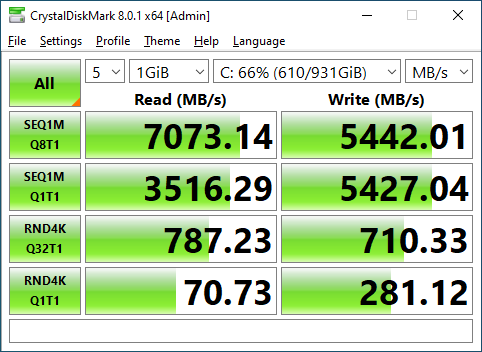
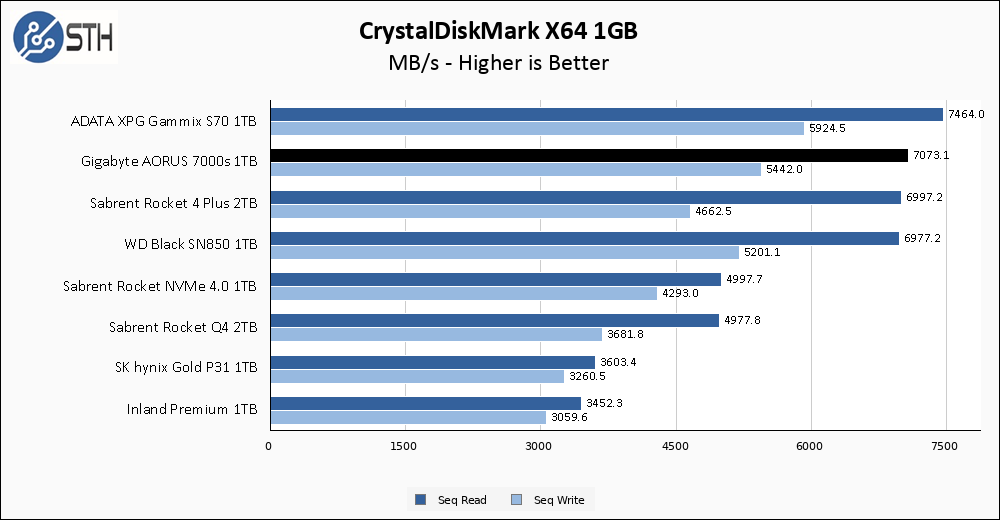
The Gigabyte 7000s 1TB nails its rated sequential performance almost exactly. Thanks to the recently reviewed S70 the 7000s is in a three-way tie for second place on our chart. Performance here is particularly close to the WD SN850.
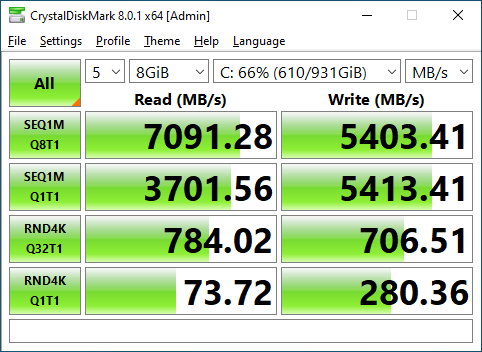
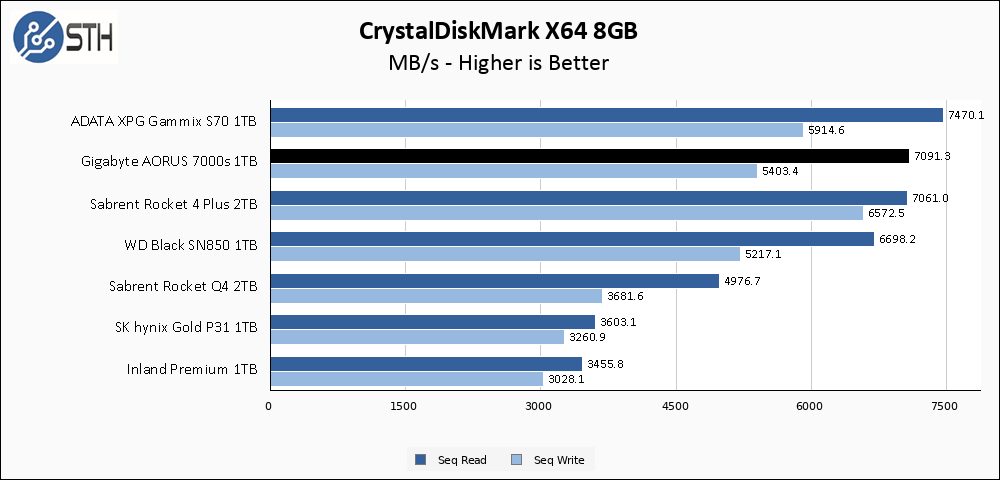
The larger CrystalDiskMark has almost zero impact on the 7000s, and once again performance very closely mirrors the WD Black SN850. Read performance is a virtual tie with Sabrent Rocket 4 Plus, which is to be expected given the hardware similarity between the two drives.
ATTO Disk Benchmark
The ATTO Disk Benchmark has been a staple of drive sequential performance testing for years. ATTO was tested at both 256MB and 8GB file sizes.
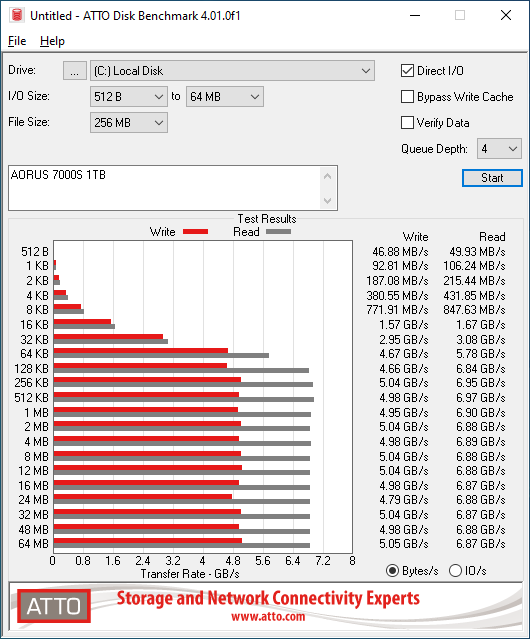
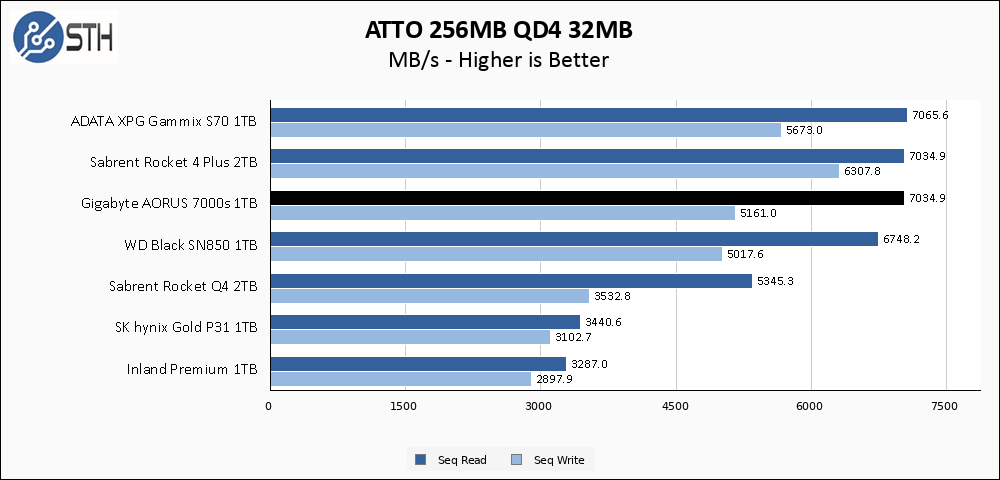
ATTO represents another virtual tie for the top, with read performance dipping a tiny bit on the Gigabyte AORUS 7000s. Performance remains the most similar to the WD Black SN850, but thus far the 7000s has maintained a small edge over that drive in most of our results.
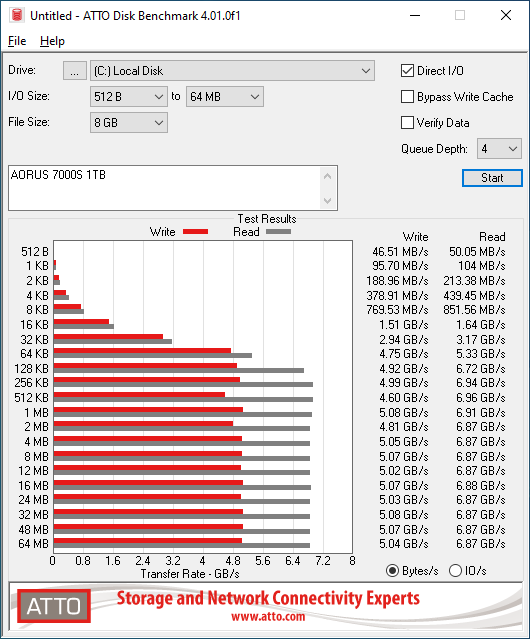
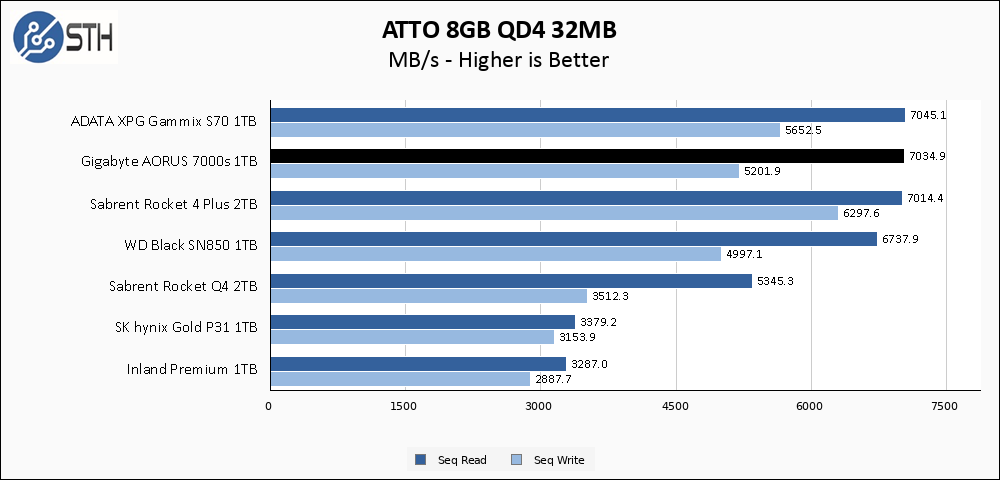
Performance in the larger ATTO test is unchanged, which is always a good thing!
Anvil’s Storage Utilities
Anvil’s Storage Utilities is a comprehensive benchmark that gives us a very in-depth look at the performance of drives tested. This benchmark was run with both a 1GB and 8GB test size.
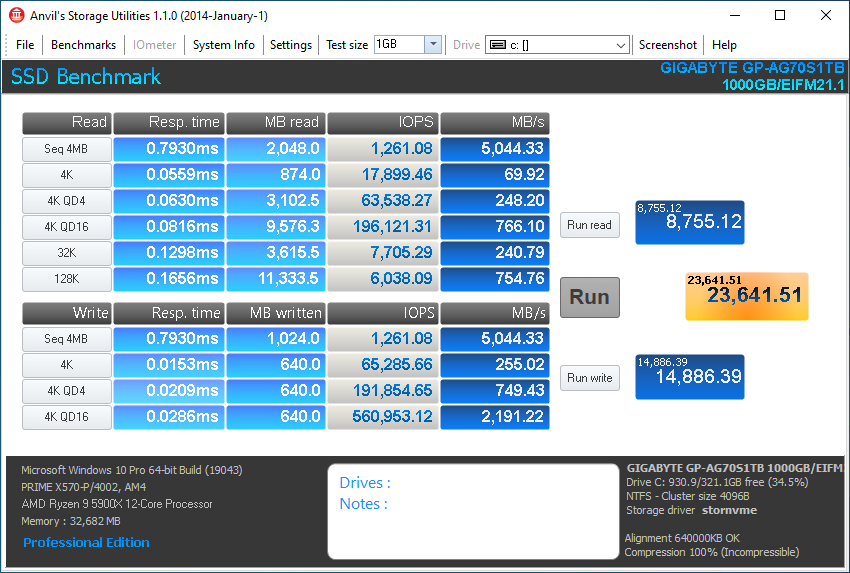
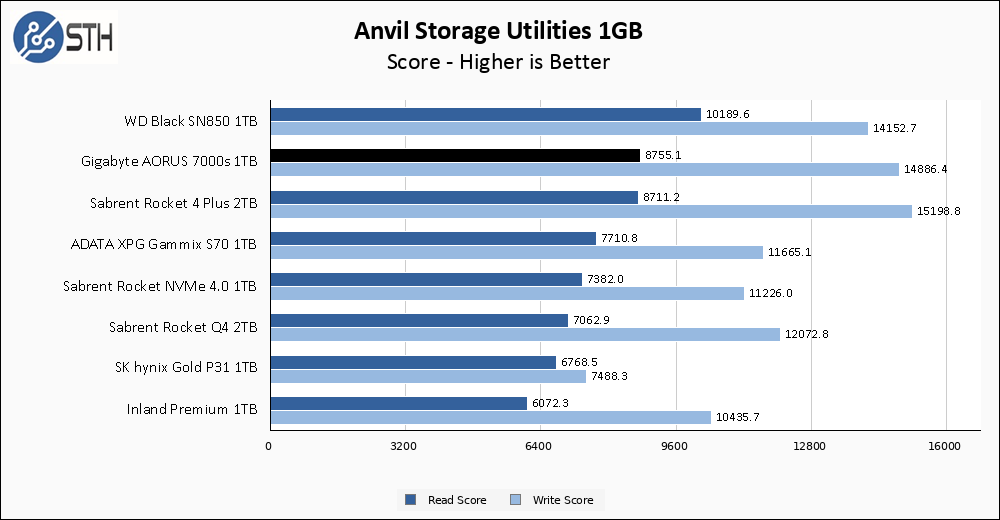
In Anvil, some differentiation finally occurs between our top-end drives. The WD Black SN850 distinguishes itself from the rest of the pack in read performance, while the Gigabyte AORUS 7000s takes the lead (along with the Sabrent) in write performance. Since both the 7000s and the Rocket 4 Plus are based on Phison controllers, their stellar write performance in Anvil is to be expected as all Phison controllers tend to do well in Anvil.
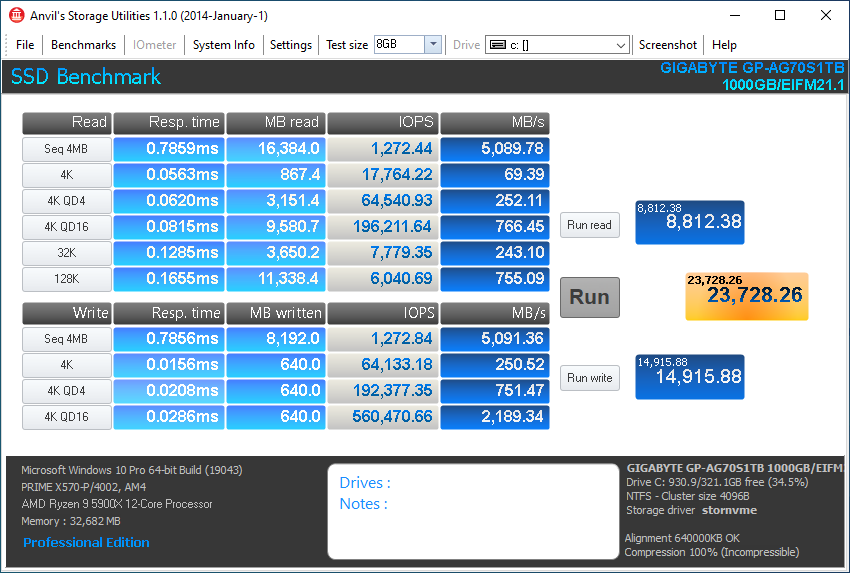
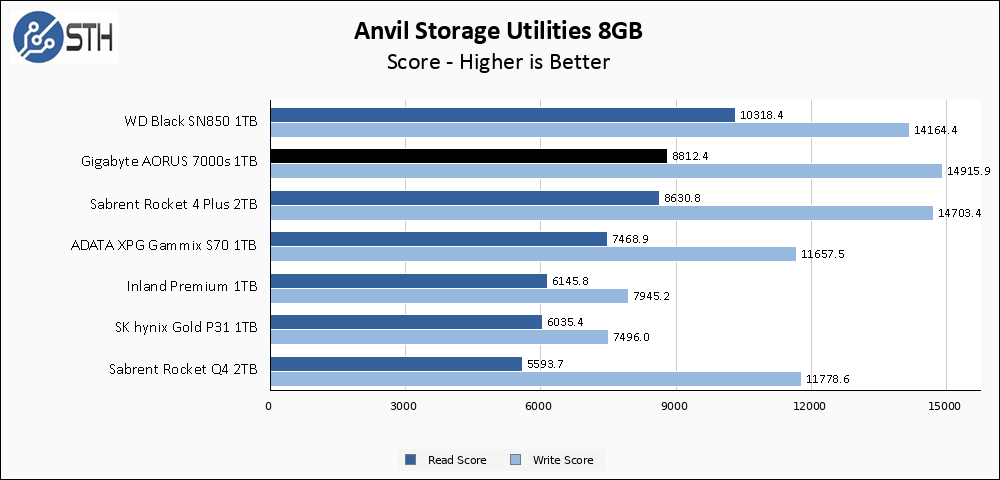
The rankings between our drives are essentially unchanged in the larger Anvil test, and the Gigabyte AORUS 7000s scores actually improve a tiny amount over the smaller test. Of note here is that the Sabrent drive lost a small step in write performance, while the Gigabyte did not.
AS SSD Benchmark
AS SSD Benchmark is another good benchmark for testing SSDs. We run all three tests for our series. Like other utilities, it was run with both the default 1GB as well as a larger 10GB test set.
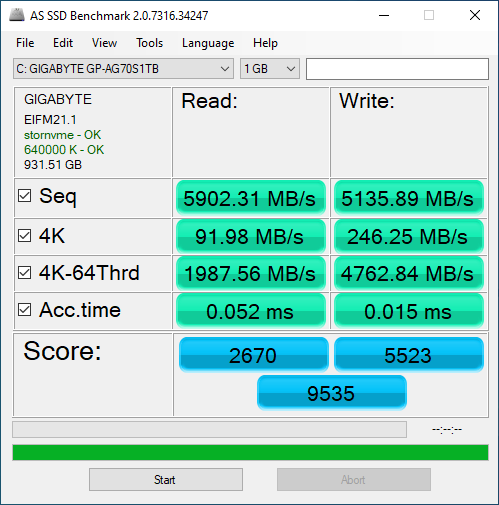
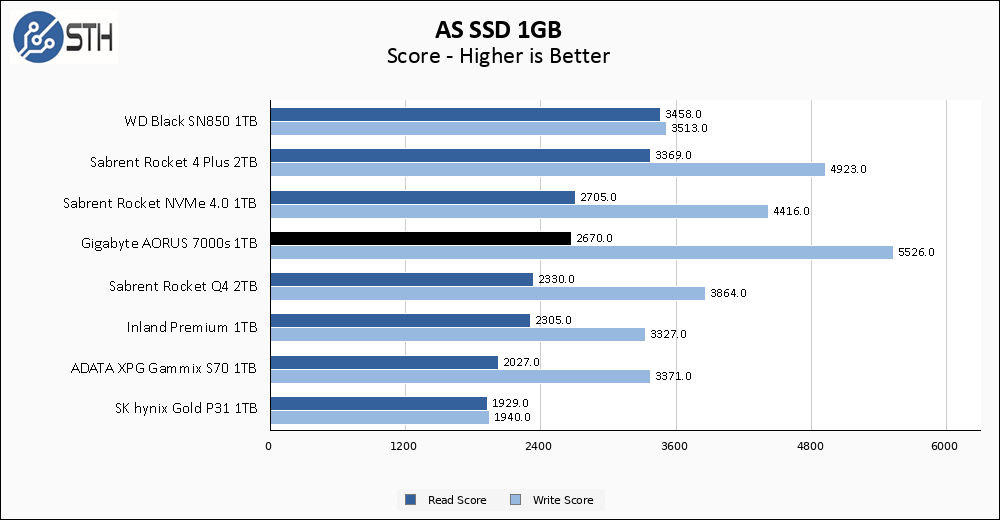
AS SSD represents a bit of a mixed bag for the Gigabyte AORUS 7000s 1TB. While read score has dropped to the middle of the PCIe 4.0 pack, its write score is chart-topping.
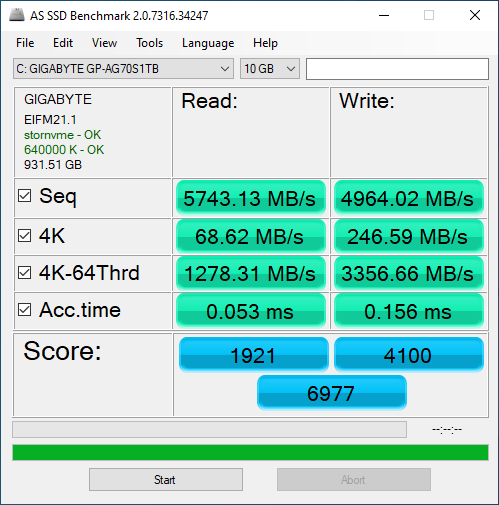
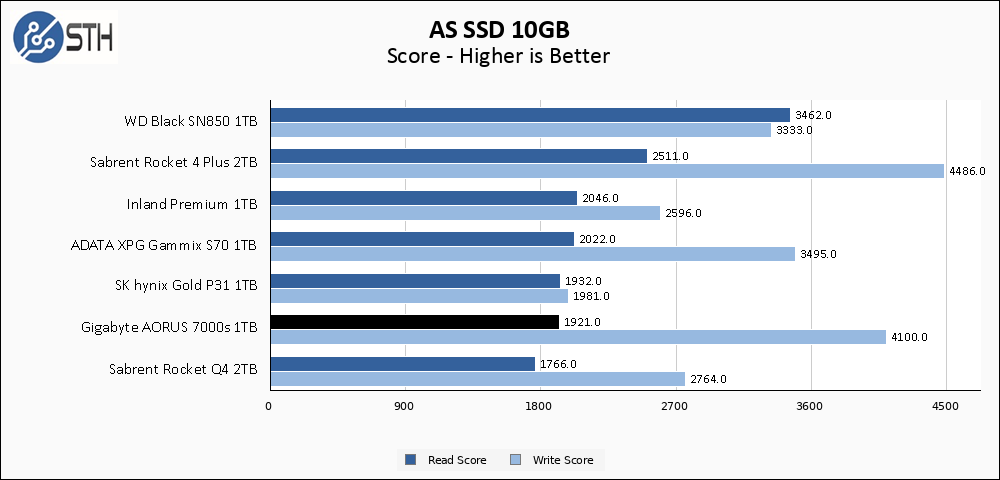
Moving to the larger test, the Gigabyte AORUS 7000s suddenly appears near the bottom of our chart. AS SSD heavily weighs multi-threaded performance in its score, which sometimes allows high-end PCIe 3.0 drives like the SK hynix Gold P31 and Inland Premium 1TB drive to put up competitive scores versus PCIe 4.0 drives. Write scores are a completely different story though, with the 7000s turning in a second-place finish behind only the Sabrent Rocket 4 Plus.
SPECworkstation, thermals, and our conclusion are up next.

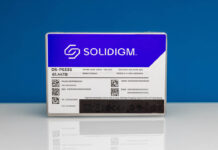
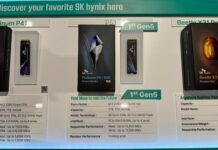
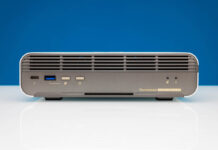
I wish you would note plp support in your drive reviews. Since you mostly review consumer drives I just assume there is none, but an explicit statement would be nice.
North Hinkle – I remember reading it when I was editing. “There is no power loss protection, as you would expect with a consumer/gaming-focused drive like this one.” The “power loss protection” is PLP written out.